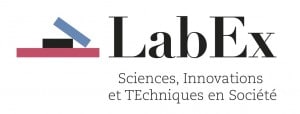2024
Journal Articles
2022
Book Chapters
Gouverner par les métriques : un exercice dans l'intermédiation des connaissances Book Chapter
In: Sciences, techniques et agricultures : gouverner pour transformer, 2022, ISBN: 978-2-35671-845-7.
2021
Technical Reports
Formal and informal European quality assurance initiatives offering a connection between local gastronomy and small-scale farmers Technical Report
2021.
2019
Journal Articles
The land sparing – land sharing controversy: Tracing the politics of knowledge Journal Article
In: Land Use Policy, vol. 96, 2019.
Technical Reports
Participatory Analysis of the Use and Impact of the Fairtrade Premium Technical Report
2019.
2018
Journal Articles
The European networks of research, education and training stakeholders in agroecology Journal Article
In: Open Agriculture, vol. 3, no. 1, pp. 537–552, 2018.
2016
Book Chapters
Evolution of a concept: a scientometric analysis of RRI Book Chapter
In: Lindner, Ralf; Kuhlmann, Stefan; Randles, Sally; Bedsted, Bjørn; Gorgoni, Guido; Griessler, Erich; Loconto, Allison; Mejlgaard, Niels (Ed.): Navigating Towards Shared Responsibility in Research and Innovation: Approach, Process and Results of the Res-AGorA Project, pp. 40-45, 2016.
LIST OF SCIENTIFIC WORKS THAT HAVE USED CORTEXT MANAGER
(Sources: Google Scholar, HAL, Scopus, WOS and search engines)
We are grateful that you have found CorTexT Manager useful. Over the years, you have been more than 1050 authors to trust CorTexT for your publicly accessible analyzes. This represents a little less than 10% of CorTexT Manager user’s community. So, thank you!
We seek to understand how the scientific production that used CorText Manager has evolved and to characterise it. You will find here our analysis of this scientific production.
Browse documents by main topics
| What types of documents? |
|---|
| What types of documents? |
| 234 journal articles |
| 42 conference proceedings |
| 41 conference (not in proceedings) |
| 39 Ph.D. thesis |
| 31 reports |
| 30 online articles |
| 23 book chapters |
| 21 masters thesis |
| 12 workshop |
| 11 bachelorthesis |
| 10 book |
| 5 miscellaneous |
| 2 presentation |
| 1 manual |
| 1 workingpaper |
| 1 proceedings |
| Main peer-reviewed journals |
|---|
| Main peer-reviewed journals |
| Scientometrics |
| I2D - Information, données & documents |
| Revue d’anthropologie des connaissances |
| Réseaux |
| PloS one |
| Revue d'anthropologie des connaissances |
| Library Hi Tech |
| Journal of Rural Studies |
| Journal of Medical Internet Research |
| Energy Economics |






